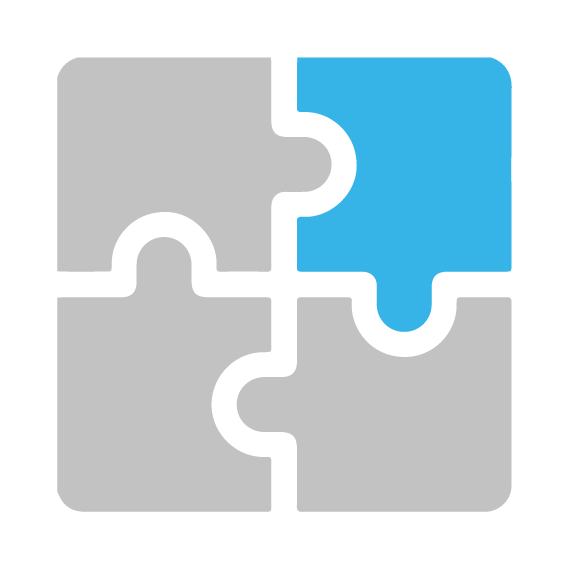About Incit
Our Institute under the microscope
Workforce
Doctoral students and Post Docs
Publications since 2016
Sites
Immunology and New Concepts in Immunotherapy
Inserm UMR 1302 / CNRS EMR 6001
The central question of the INCIT joint research unit is to understand the dynamics of the immune response in physiological and pathological situations, in order to highlight the common mechanisms of immune escape in cancer and chronic inflammatory pathologies (inflammation and infection), and to propose original immunotherapy strategies to circumvent these situations.
To achieve this objective, we will rely on tools, cellular and animal models already developed in the unit and those to be developed in the future, as well as on the technological and scientific expertise acquired by the teams over the last 30 years in the knowledge of the various cellular and molecular mediators of innate and adaptive immunity.
To get to know us better, you can also watch this video: https: //youtu.be/tvvd_wqSgmQ
Why a new unit?
Officially created in January 2022, INCIT brings together researchers with over 30 years of experience in immunology and immunotherapy in the region.

Human structure
Gathering within a human-sized structure avoiding thematic dispersion and administrative heaviness

Focus on immunology
Shared and focused scientific expertise with complementary technologies

Common approach
Common approaches from basic research to clinical applications

Improving visibility
Discover the expertise in Immunology and Immunotherapy in Nantes and Angers

Years of experience
In 1992, publication of the first clinical trial in Europe of adoptive transfer of TILs for the immunotherapy of melanoma.
Scientific organisation of the unit
The scientific organisation of the unit will follow three complementary strategic axes:
01
Basic research
The fundamental aspects of our projects aim to identify the pathways/mediators of activation or regulation of the immune response, as well as new targets for the activation or modulation of the immune effectors studied.
- Activation/inhibition pathways of the immune response
- Identification / Characterisation of therapeutic targets
- Characterisation of regulatory mechanisms
- Mechanisms of resistance/response to immunotherapies
02
Technology development
Within an "engineering" axis, we will develop tools, protocols and preclinical models, targeting or using the targets, mediators or activation pathways identified in the various basic research programmes.
- Nanovectors
- Targeting tools
- Optimised T-cells
- Organoids, explants
- Animal models
03
Therapeutic development
Our research programmes - most of which are closely linked to clinical transfer - contribute to the development of immunotherapy protocols for the teams with the most advanced projects.
- Selection and amplification of therapeutic T cells
- Transfer transfer of T cells
- Anti-tumour and anti-infective vaccines
- Modulation of inflammatory responses
- Combination therapies
- Tissue repair
Unit projects for 2022-2027
The research programmes aim to understand the fundamental aspects of cellular immunity, both innate and adaptive, as well as the alterations of these responses in severe pathologies, namely certain solid tumours (such as melanoma, colorectal cancer), chronic inflammatory diseases (IBD) and infectious diseases induced by mycobacteria or viruses. In addition to fundamental information, these projects aim to propose innovative immunotherapeutic strategies.
Achievements
Discover the institute's success stories
174
Total scientific publications of the 4 Groups
103
Total clinical publications of the 4 Groups
3
Biotech start-ups by INCIT members
- Affilogic : Frédéric Pécorari
- Ceeram (acquired by Biomérieux): Jacques Le Pendu
- In-cell-Art : Bruno Pitard
2
Programmes of excellence
- PIA 2 & 3: LabEx IGO (all INCIT teams)
- RHU: SUccEss (team 2)
Technical and technological platforms
The INCIT unit has developed a technical platform fororganoid culture andimaging. In particular, we have a Zeiss Cell Discoverer 7 imaging station that is particularly well suited to monitoring the growth and morphology of organoids over several days. This equipment also enables us to acquire images of histological sections in their entirety after labelling either at protein level (immunofluorescence)
or at mRNA level (RNAscope). Our INCIT unit is also equipped with a Zeiss AxioObserver 7 video-microscopy workstation, which enables multi-labeling analysis of up to 7 fluorescence colors, and is particularly well suited to kinetics on organoids grown on microfluidic chips.
Cell Discover 7 Zeiss Axio Observer 7


In addition, the INCIT unit benefits from access to all the platforms coordinated by UMS BIOCORE (Nantes) and the SFR ICAT (Angers). The INCIT unit also hosts equipment from the "Cytocell" (scientific coordination provided by a member of our unit) and " micropicell" platforms belonging to the UMS Biocore. We therefore have access to several pieces of equipment, either for high-throughput screening of the expression of certain markers on cell populations of interest, or for exhaustive characterization of certain cell sub-populations using high-dimensional cytometry.
Very recently, our INCIT unit acquired a cytometer-sorter (Tyto) enabling clinical-grade selection of cell sub-populations of therapeutic interest. This unique closed-circuit technology will enable us to develop innovative cell therapy trials in oncology and inflammatory diseases, in close collaboration with theNantes University Hospital Cell and Gene Therapy Unit (UTCG), which also possesses the same equipment. This will enable us to develop production processes for these therapeutic cells, and then transfer them directly to the UTCG for clinical trials.
Fortessa X-20 Tyto cell sorter


The following platforms provide support for INCIT projects, from in vitro to pre-clinical and clinical phases.


